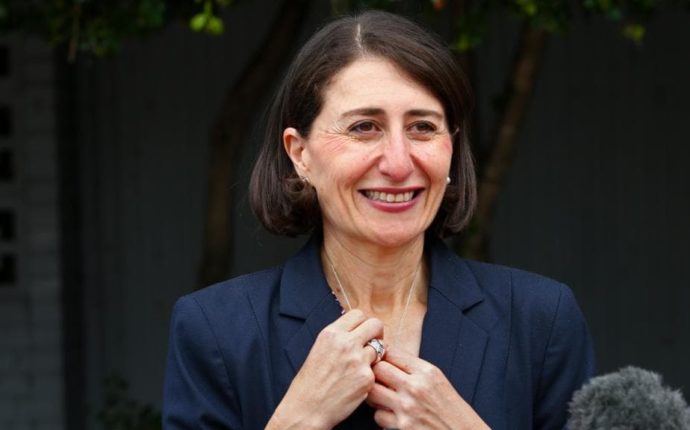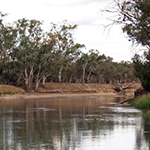N.S.W. promises to deliver the Basin Plan in full and without delay.

Barilaro’s Basin Plan bluster torpedoed by Berejiklian

Mike Foley@micksfoley9 Aug 2019, 5:28 p.m.

NSW Deputy Premier John Barilaro. Photo AAP Joel Carrett.
Quietly and without fuss NSW Premier Gladys Berejiklian has diffused the bomb planted under the Murray Darling Basin Plan by her deputy John Barilaro.
Last Sunday, after a ministerial council meeting between basin state ministers (MINCO), Mr Barilaro fired a warning that the Basin Plan was “untenable” and NSW was thinking about pulling out.
Today, NSW Premier Gladys Berejiklian opted to diffuse interstate tensions in the heated Murray Darling negotiations, despite NSW having no “more water to give” according to Mr Barilaro
He had stated at the weekend that “our communities are being sailed up the river by the Commonwealth and South Australia is holding every other state to ransom.
“Enough, is enough and it is time NSW considered all of its options in relation to its position on the delivery of the plan,” Mr Barilaro said.
But on the sidelines of the Council of Australian Governments (COAG) meeting in Cairns, Ms Berejiklian and the other Murray Darling Basin state premiers were signatories endorsing full implementation of the Basin Plan.
“This response is from all six governments of the Basin and represents a commitment to continue the task of implementing the Basin Plan in full and without delay,” said the basin states’ joint response to a Productivity Commission inquiry into water reform.
Basin state premiers also signed up to a revised Intergovernmental Agreement on Implementing Water Reform in the Murray Darling Basin – which included funding and implementation arrangements for more water recovery (see below).
After the COAG meeting today Ms Berejiklian thanked NSW’s :state colleagues for acknowledging the deep drought impacting New South Wales as we signed an agreement today through the Murray-Darling Basin Plan to provide infrastructure funding to communities to ensure water capacity moving forward.”
At MINCO With resistance from South Australia, NSW Water Minister Melinda Pavey and Victorian Water Minister Lisa Neville failed to gain consensus for their request to review the Murray Darling Basin Authority’s modelling of constraints on river flows.
They were concerned about potential flooding when, under full implementation of the Basin Plan, there is a peak flow rate of 80,000 megalitres a day at the SA border.
A spokesman for Mr Barilaro said today, after the COAG meeting, that it was premature to withdraw from the Basin Plan until NSW and Victoria’s review was underway.
“Given the peer reviewed work has not started it is premature for NSW to walk away from the plan, the reality is in delivering the plan in full there can be no negative social and economic impacts in relation to the recovery of the additional 450GL which the Deputy Premier has said in nonnegotiable,” the spokesman said.
“That is why we will continue to consider all our options.”
On Sunday Mr Barilaro had reacted to the ongoing water recovery process under the Basin Plan.
Around 2100 gigalitres worth of the 3200GL recovery target has been returned from irrigation to the environment since the Basin Plan was legislated in 2012. There are two elements of water recovery to go.
There is around 605GL of supply projects to be built – that is infrastructure works that deliver an equivalent benefit to water delivery to the environment without physical water recovery. This is less contentious, as it won’t take water away from irrigators and river towns.
Then there is the more controversial element of water recovery, which is 450GL of efficiency projects to deliver increased environmental flows bound for South Australia.
Also known as upwater, the $1.5 billion upwater program was originally designed in 2012 to recover water through voluntary water buybacks and on-farm investment, where irrigators swap their entitlements for more efficient water infrastructure.
But a deal cut by NSW and Victoria’s Water Ministers with SA in December last year banned direct upwater buybacks from farmers and created strict conditions for on-farm water recovery.
Now the proponent must prove their project proposal would not have a negative socio-economic impact on the local region.
Previously, the proponent only needed to demonstrate the project would not have a negative impact on their farm – which was unlikely given they would get paid.
Click the red SUBSCRIBE button on the upper side bar to receive free email notifications of new Riverina State posts.


